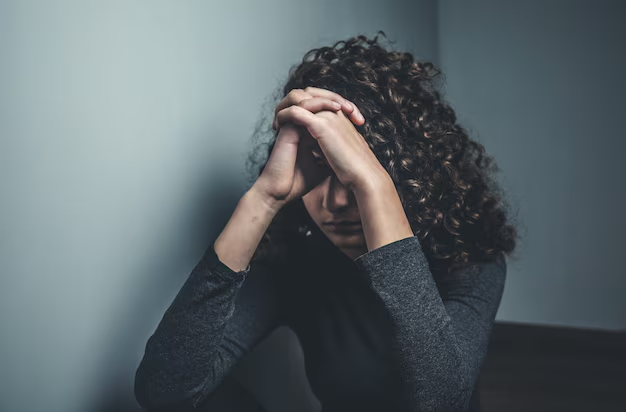Understanding Anxiety Attacks: What You Need to Know
Imagine standing in a familiar place when a sudden wave of fear sweeps over you. Your heart races, your breathing becomes shallow, and time seems to slow down as you're engulfed by an overwhelming sense of dread. This is a glimpse into what an anxiety attack can feel like. But what exactly is an anxiety attack, and how does it differ from other similar experiences? Let's unravel the complexities of anxiety attacks to provide a clearer, more comprehensive understanding.
Recognizing the Signs of an Anxiety Attack
What Happens During an Anxiety Attack?
An anxiety attack is a sudden episode of intense fear or panic that feels debilitating and overwhelming. While everyone may experience anxiety attacks differently, common symptoms often include:
- Rapid heartbeat or palpitations
- Difficulty breathing or feeling smothered
- Sweating and trembling
- A sense of impending doom or danger
- Feeling detached from reality
- Dizziness or lightheadedness
During an anxiety attack, your body enters a heightened state of arousal known as the "fight or flight" response, releasing adrenaline into your bloodstream. This response is hardwired into the human body as a survival mechanism, but during an anxiety attack, it occurs without an apparent threat.
How Does it Differ from a Panic Attack?
Panic attacks, though similar, are typically more intense and may reach their peak rapidly. One key distinction is the element of surprise—panic attacks often come out of the blue, whereas anxiety attacks can be triggered by anticipatory anxiety about a feared event or situation. Understanding these nuanced differences is crucial for individuals trying to manage their symptoms.
Triggers and Causes: Why Do Anxiety Attacks Happen?
Identifying Common Triggers
While the exact cause of anxiety attacks isn't entirely understood, several factors are known to trigger such episodes:
- Stress: High-stress levels related to work, relationships, or major life changes.
- Phobias: Specific fears such as social situations, heights, or spiders can provoke an attack.
- Health concerns: Concerns over physical health or the health of loved ones.
- Caffeine and Diet: Certain substances, like caffeine, can exacerbate anxiety symptoms.
The Role of Genetics and Environment
Anxiety disorders, which often include frequent anxiety attacks, can run in families, suggesting a genetic component. However, environmental factors like upbringing, traumatic experiences, and even prolonged stress can also contribute significantly.
Coping Strategies and Techniques
Immediate Responses to Calm Anxiety
When you're faced with an anxiety attack, having a toolkit of immediate strategies can be invaluable.
- Deep Breathing: Focus on taking slow, deep breaths—inhale through your nose, hold briefly, and then exhale slowly through your mouth. This can help regulate your breathing and calm your nervous system.
- Grounding Techniques: Engage in activities that draw your attention back to the present, such as describing your surroundings in detail or touching objects around you for sensory input.
- Positive Visualization: Close your eyes and picture a tranquil scene where you feel safe and relaxed, whether it's a sunny beach or a quiet forest.
Long-term Management Approaches
For a more sustained approach to managing anxiety and preventing attacks:
- Regular Exercise: Physical activity releases endorphins, which improve mood and reduce stress.
- Mindfulness Meditation: Practicing mindfulness can help you stay centered and reduce anxiety over time.
- Seeking Professional Help: Therapy or counseling can provide valuable tools and coping mechanisms tailored to your needs.
The Impact on Daily Life
Navigating Personal and Professional Challenges
Anxiety attacks can be disruptive, affecting both personal and professional areas of life. In personal relationships, misunderstandings may arise if partners, family, or friends do not fully understand what the person is experiencing. Open communication and education are essential in fostering supportive relationships.
At work, anxiety attacks might result in missed deadlines or avoidance of certain tasks or interactions. Building a supportive work environment where employees feel safe and understood can greatly alleviate the pressure associated with anxiety disorders.
Debunking Common Myths
Clarifying Misunderstandings About Anxiety Attacks
There are many misconceptions about anxiety attacks that can lead to stigma or misunderstanding. Here are a few myths debunked:
Myth 1: Anxiety attacks are not "real" health issues.
Reality: Anxiety attacks are legitimate and recognized by mental health professionals as serious conditions that warrant attention.Myth 2: You can just "snap out of it."
Reality: An anxiety attack is not something that can be controlled or simply willed away.Myth 3: Only weak people experience anxiety attacks.
Reality: Anxiety does not discriminate by strength or character—it can affect anyone.
Navigating Life with Anxiety: Building Resilience
Emphasizing Self-Compassion and Empowerment
Living with anxiety doesn't define an individual's entire being. It is one aspect of life that can be managed with the right tools and support systems. Self-compassion involves acknowledging one's struggles without judgment and offering oneself kindness and understanding.
Resilience can be built by celebrating small victories, seeking support from communities with similar experiences, and maintaining an optimistic perspective towards personal growth and healing.
Taking proactive steps towards mental health doesn't just improve quality of life; it also builds the resilience needed to face life's challenges.
Key Takeaways: Understanding Anxiety Attacks 🌟
- Recognize the Symptoms: Rapid heartbeat, sweating, and fear can indicate an anxiety attack.
- Know the Triggers: Stress, phobias, and caffeine are common triggers.
- Immediate Coping: Utilize deep breathing and grounding techniques to manage attacks.
- Long-term Management: Exercise, mindfulness, and professional help can aid in prevention.
- Myths Debunked: Anxiety attacks are real and affect people regardless of perceived strength.
Embrace these tools and understand that navigating anxiety is a journey requiring patience and support. You are not alone, and taking informed steps can make a significant difference.

